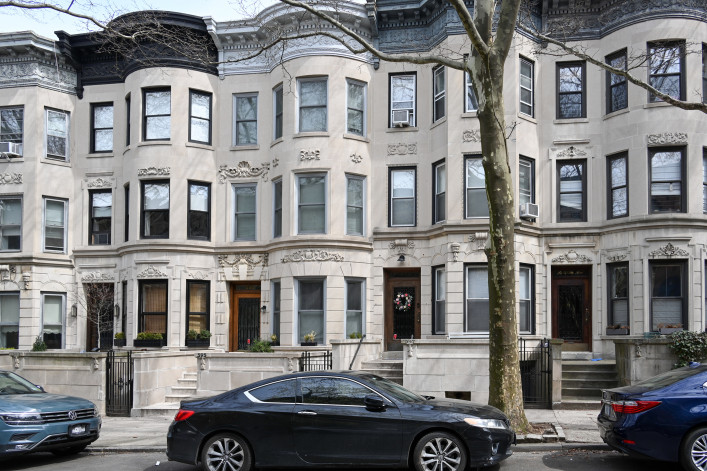Ask Sam: I’m moving and need to break my lease. How can I avoid paying a penalty?
- You may be responsible for paying the rent until the owner finds a new tenant
- An option is for you to find a replacement and request an assignment of the lease

Your landlord has a legal obligation to make efforts to re-rent the apartment to a new tenant.
iStock
I need to relocate for a new job and break my apartment lease. How can I avoid getting sued for breach of lease or charged a penalty?
Landlords have a legal duty to mitigate damages—that is, take action to re-rent the apartment when a tenant breaks their lease, says Sam Himmelstein, an attorney at Himmelstein, McConnell, Gribben & Joseph who represents residential and commercial tenants and tenant associations.
Mitigation law requires landlords to make reasonable and customary efforts to re-rent the apartment at fair market value or at the rate agreed to during the term of the tenancy, whichever is lower.
“If the landlord complies with mitigation law and can’t re-rent the apartment, then the tenant remains responsible for paying the rent until a new tenant is found,” Himmelstein says. “Or if the landlord can only rent the apartment at a lower rate than stipulated by the lease, then the tenant is responsible for the difference for the balance of the lease.”
Another option is for the tenant to find a suitable replacement and request an assignment of the lease. Legally, if a landlord unreasonably refuses to re-assign your lease to a new assignee, they must release you from the lease.
“Many landlords will say you have to find a replacement, which is not true,” Himmelstein says. “A tenant can do that, and we often recommend it because you can get around a lease breach claim that way, but the landlord can’t require it. It’s the landlord’s obligation to find someone new to move into the apartment.”
Landlords who violate mitigation law—by demanding the old tenant find a new one, or by listing the apartment at a higher rent—also cannot claim that you have breached the lease.
Therefore, it’s a good idea to keep an eye out and see if your landlord is trying to re-rent the apartment for more than you were paying. (For more on this aspect of mitigation law, see this previous Ask Sam column.)
Another concern for tenants who need to break their leases is getting their security deposits back. Some tenants may find it easier to let the landlord keep the deposit and apply it to the rent while they mitigate.
But legally, Himmelstein says, “If the tenant leaves and the landlord doesn’t give them a list within 14 days of items that constitute a basis to not refund the security deposit—that is, various forms of damage to the apartment—they have an obligation to refund it.”
Note that tenants who break their leases due to conditions in the apartment are protected from lease breach claims.
“A really common reason for tenants to break a lease these days is that their apartment is in the basement and floods all the time,” Himmelstein says. “In other cases, they don’t have gas. If conditions are so bad that the apartment is unlivable, this is considered constructive eviction."
In such a situation, a tenant can have their lease terminated early. The issue must be severe, however—an occasional leak, or the presence of some roaches now and then, do not entitle the tenant to break their lease.
Related:
Ask Sam: There was a fire next door and it's aggravating my asthma. Can I break my lease? (sponsored)
Ask Sam: How much notice do I have to give my landlord to leave a rent stabilized apartment? (sponsored)
Read all our Ask a Renters Rights Lawyer columns here.
Sam Himmelstein, Esq. represents NYC tenants and tenant associations in disputes over evictions, rent increases, rental conversions, rent stabilization law, lease buyouts, and many other issues. He is a partner at Himmelstein, McConnell, Gribben & Joseph in Manhattan. To submit a question for this column, click here. To ask about a legal consultation, email Sam or call (212) 349-3000.

























